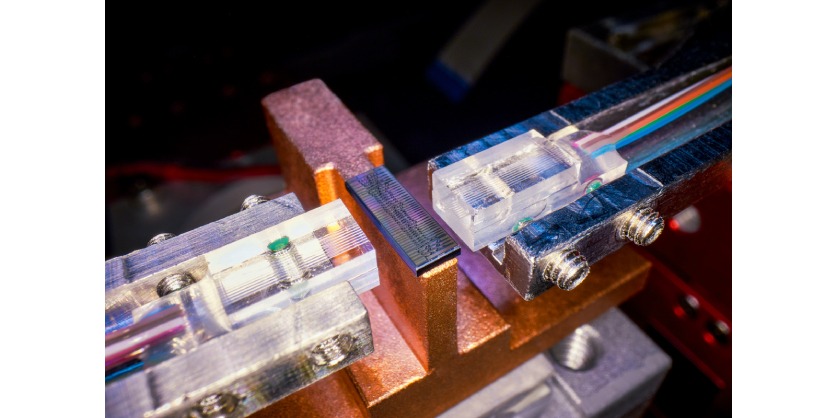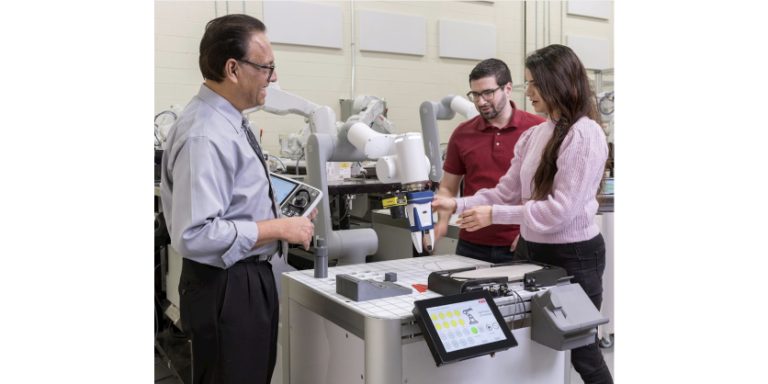Xanadu Selected for Prestigious Canadian Defence Program to Pioneer Next-Generation Battery R&D
August 12, 2025

Xanadu, a global leader in quantum computing hardware and software, recently announced its selection for Round 1 of the highly-competitive “IDEaS NORAD Modernization S\&T Contest,” an initiative by Innovation for Defence Excellence and Security (IDEaS) within Canada’s Department of National Defence (DND). This selection underscores Xanadu’s innovative capabilities in pioneering quantum algorithms for advanced battery design, a crucial step towards strengthening North America’s defences against evolving aerospace and maritime threats, particularly in extreme environments.
The IDEaS NORAD Modernization S\&T Contest aims to foster groundbreaking solutions to modernize the science and technology portfolio of NORAD, the North American Aerospace Defense Command. Xanadu will receive an initial grant of $1,000,000 CAD to design quantum computing algorithms and methodologies for next-generation battery development. The goal is to advance the methods needed to design new batteries that are highly resilient to extreme conditions, including dramatic temperature changes, strong mechanical pressures, and radiation exposure.
“We are honoured to be chosen for this groundbreaking program,” said Juan Miguel Arrazola, Director of Quantum Algorithms. “Our work will focus on developing quantum algorithms to simulate battery mechanisms that lead to degradation performance under extreme conditions, such as ultra-low temperatures. The goal is to identify how quantum computers can lead to the development of more resilient batteries, unlocking new capabilities across defence, industry, and science.”
Xanadu’s proposed project directly addresses two key IDEaS challenge topics: enhancing Arctic mobility and navigation of military platforms, and accelerating the development of quantum technologies. The Arctic is an increasingly important geostrategic region for North American defence, and current battery technologies struggle in its remote and extreme weather conditions, limiting the effectiveness of autonomous and remotely piloted systems. Xanadu’s quantum-enabled simulations will help overcome the limitations of classical computing methods, enabling the design of batteries that can withstand these harsh environments.
This project builds on Xanadu’s extensive expertise and prior work in using quantum algorithms to simulate the design of new materials. This commitment to innovation will not only strengthen Canada’s defence capabilities, but also enable breakthroughs with far-reaching implications for clean energy, transportation, and scientific exploration, demonstrating the transformative potential of quantum computing for a safer and more sustainable future.
About Xanadu: Xanadu is a Canadian quantum computing company with the mission to build quantum computers that are useful and available to people everywhere. Founded in 2016, Xanadu has become one of the world’s leading quantum hardware and software companies. The company also leads the development of PennyLane, an open-source software library for quantum computing and application development. Visit xanadu.ai or follow them on X @XanaduAI.
About the IDEaS NORAD Modernization S\&T Contest: The Innovation for Defence Excellence and Security (IDEaS) program supports the ongoing evolution of continental defense capabilities by investing in researchers, innovators, and entrepreneurs. The NORAD Modernization S\&T Contest specifically aims to assess new threats, evolve research and development, and co-develop technological solutions in immediate priority areas for North American defence.
Related Story
Xanadu Introduces Aurora: World’s First Scalable, Networked and Modular Quantum Computer
Xanadu has achieved what they say is a world-first in the quantum computing industry by successfully building a universal photonic quantum computer consisting of four modular and independent server racks that are photonically interconnected and networked together. This 12 qubit machine, known as Aurora, consists of 35 photonic chips and a combined 13 km of fiber optics all operating at room temperature.
With this breakthrough, Aurora could in principle be scaled up to thousands of server racks and millions of qubits today, realizing the ultimate goal of a quantum data center. This result is published in the peer-reviewed journal Nature and marks a pivotal milestone towards realizing utility scale quantum computing.






